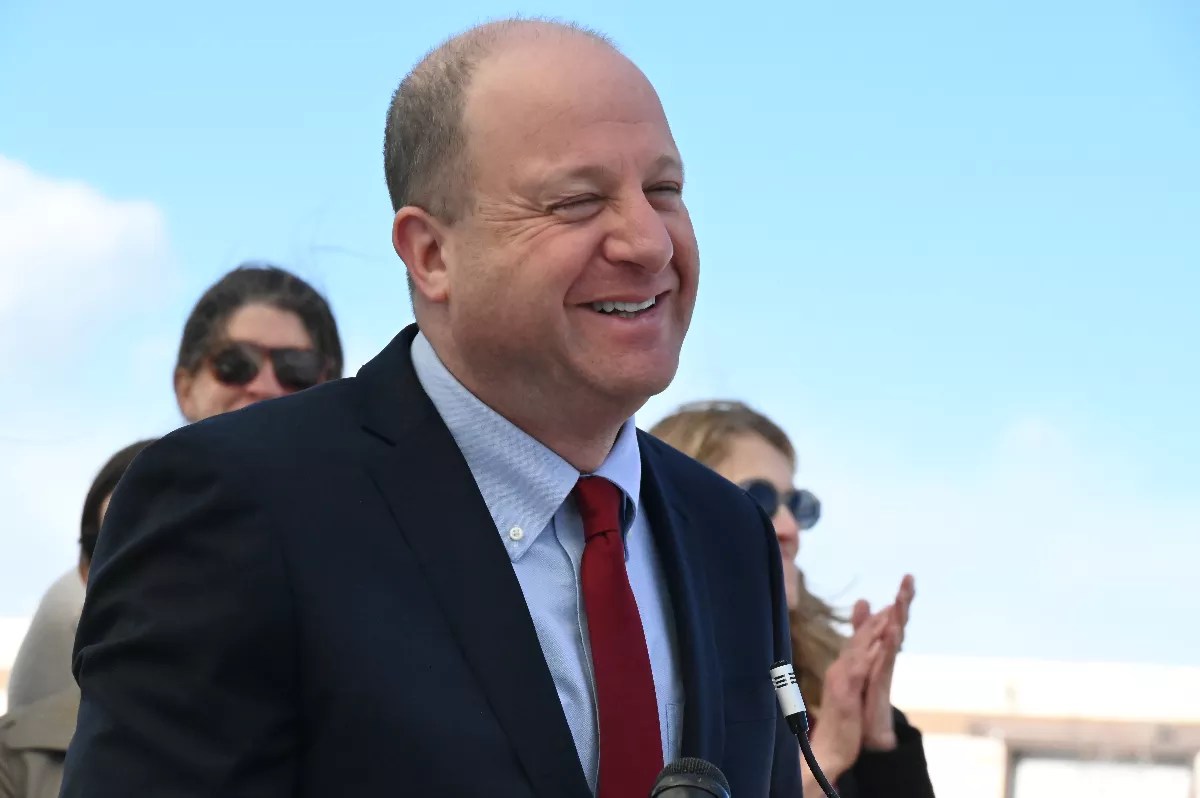
Bennito L. Kelty

Audio By Carbonatix
A proposed state law to regulate how social media companies respond to illegal conduct on their platforms died on Monday, despite receiving overwhelming bipartisan support from legislators.
Senate Bill 25-086 would have required large social media companies to permanently remove accounts found to be engaging in the sale of drugs or guns, or the sexual trafficking or exploitation of minors. The bill also aimed to speed up the timeline for law enforcement investigations into those crimes, requiring social media companies to comply with search warrants within 72 hours and to maintain a hotline to communicate with law enforcement.
The bill passed the Colorado Legislature with approval from 75 out of 100 lawmakers. However, Governor Jared Polis vetoed the bill on April 24, arguing that it “unduly infringes on the speech, privacy, and liberty rights of all users.”
The legislature can circumvent a governor’s veto if two-thirds of lawmakers in the Senate and House vote in support of the override. SB 25-086 passed with more than a two-thirds supermajority in both chambers – but when it came down to the override vote, some supporters backed out, refusing to challenge the governor.
Senators chose to override the veto in a 29-6 vote on April 25, but House representatives declined to take up the veto override vote on Monday, April 28, opting to permanently delay the motion, 51-13, with one member absent.
“We have accepted the fact that the governor has exercised his authority to veto this bill,” Representative Andrew Boesenecker, a sponsor of SB 25-086, said on the House floor on Monday. “The Senate has exercised their constitutional authority to override that veto. …Today, the votes are not here in this chamber to do the same. That is a statement of fact.”
Supporters say the policy is meant to protect young social media users by cracking down on widespread illegal activity on the platforms. The years-long effort is backed by parents whose children died of overdoses from drugs purchased over social media.
Critics raise concerns that the bill could violate freedom of speech protections and assign private companies with the task of determining when users break the law. Polis, who is a millionaire tech entrepreneur, has also expressed worries about the impact the policy would have on “innovation” and data reporting for social media companies.
“Despite good intentions, this bill fails to guarantee the safety of minors or adults, erodes privacy, freedom, and innovation, hurts vulnerable people, and potentially subjects all Coloradans to stifling and unwarranted scrutiny of our constitutionally protected speech,” Polis wrote in his veto letter. “The approach set forth in SB25-086…empowers social media companies with police-like powers to make or break someone’s lives and livelihood in a time when free expression is absolutely critical – and vulnerable for the success of our democracy.”
Sponsors of the bill say they will continue working on the legislation in the future.
“This bill gives us the tools to help remove predators and traffickers from using social media to harm our kids,” Senator Lindsey Daugherty, another sponsor of the bill, said during the Senate’s override vote on April 25. “It’s not about censorship, it’s not about speech, it’s about standing up for the safety and dignity of our youngest and most vulnerable. …That’s not overreach, that’s common sense.”
Legislators have never overridden a veto from Polis in his six years in office. The Colorado Legislature’s last successful veto override vote was in 2011.